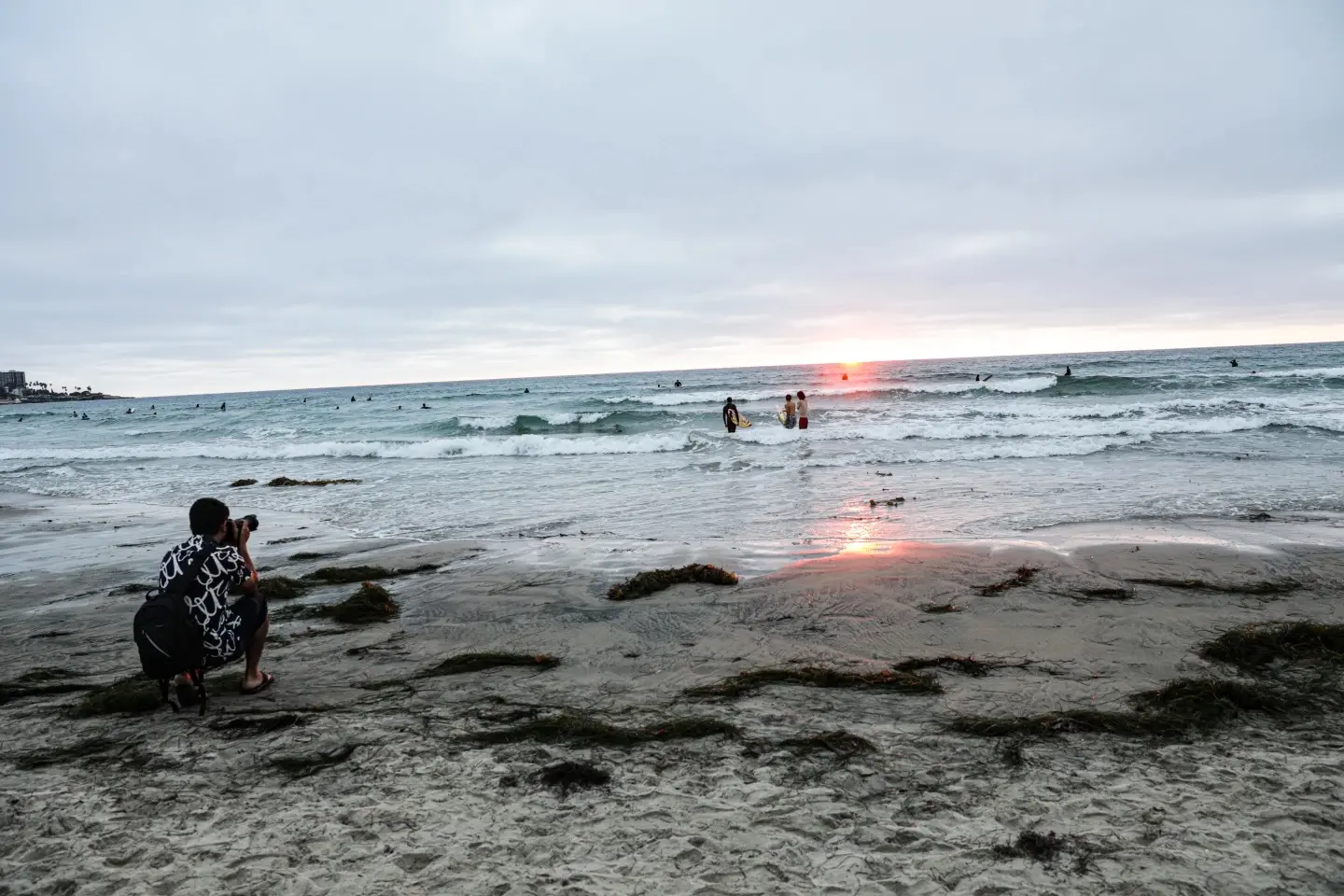Omer Khan narrowly fled Afghanistan as the Taliban took over one year ago. Now he’s creating a new body of work in San Diego, but can’t shake the images from his home.
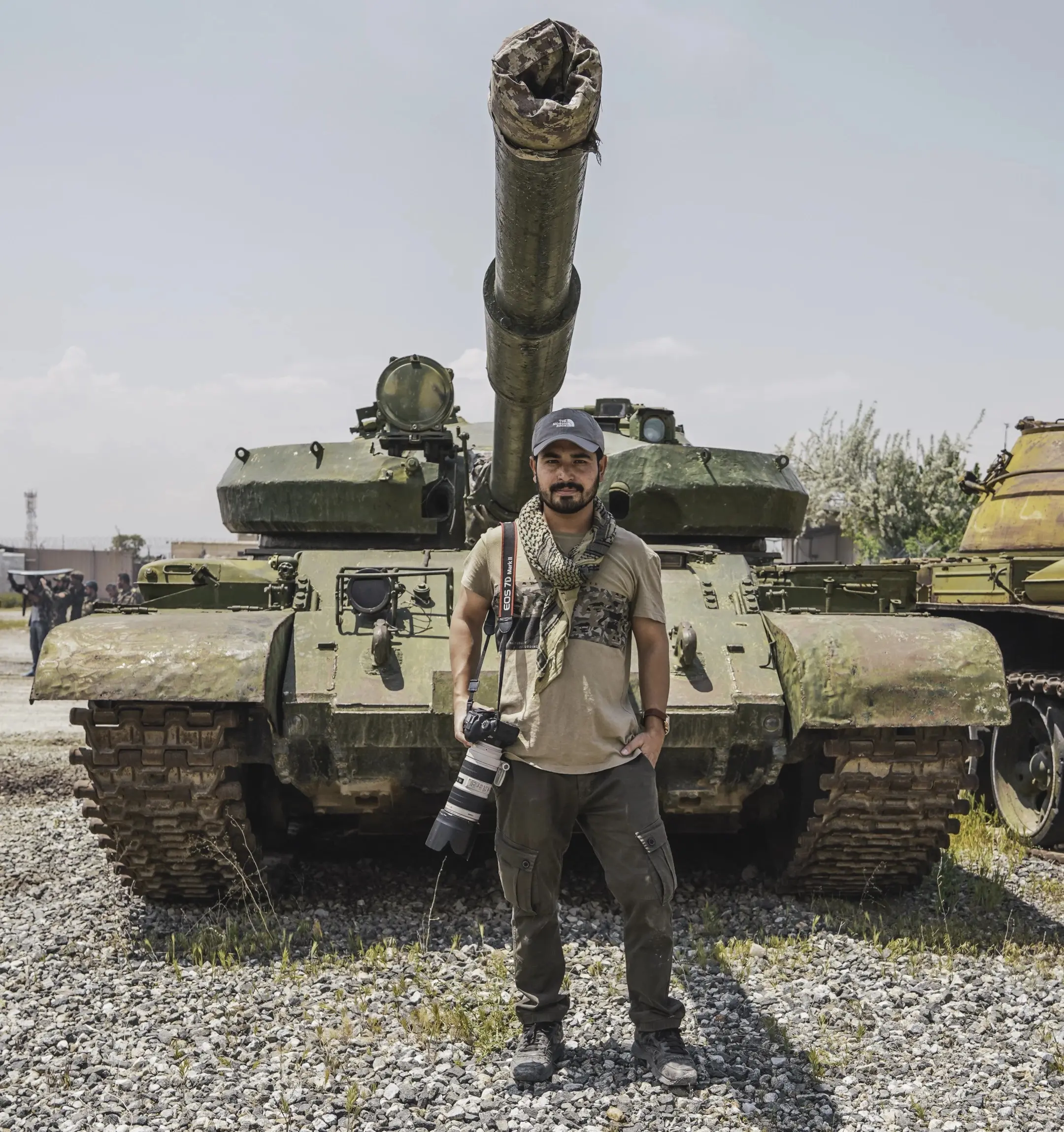
On Aug. 24, 2021, Omer Khan, a freelance photographer from Kabul, Afghanistan, grabbed his camera and a few other belongings as he escaped his homeland with his wife, son, and brother, nine days after the Taliban entered Kabul and took control of the capital.
Khan is among the more than 80,000 refugees who were able to evacuate Afghanistan. He navigated chaos and danger at the Kabul airport before making his way onto a crammed U.S. military flight, with the United States as the final destination.
One year later, Khan—who has created a new life for himself and his family in El Cajon—reflects on what he left behind in Afghanistan and what he hopes for his future in the U.S.

As a nonprofit journalism organization, we depend on your support to fund more than 170 reporting projects every year on critical global and local issues. Donate any amount today to become a Pulitzer Center Champion and receive exclusive benefits!
“We lost everything. We lost our [identity], home, our life.”
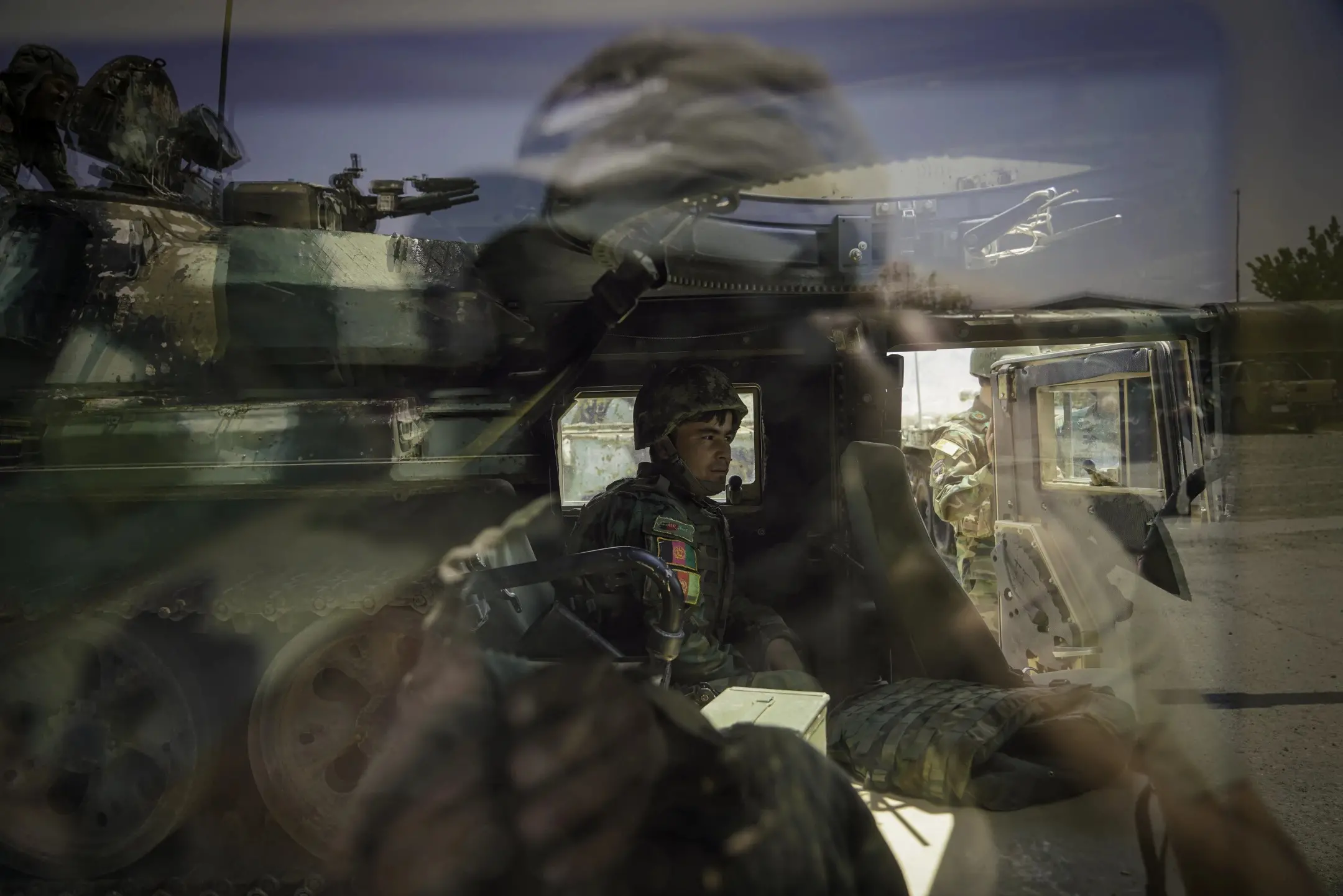
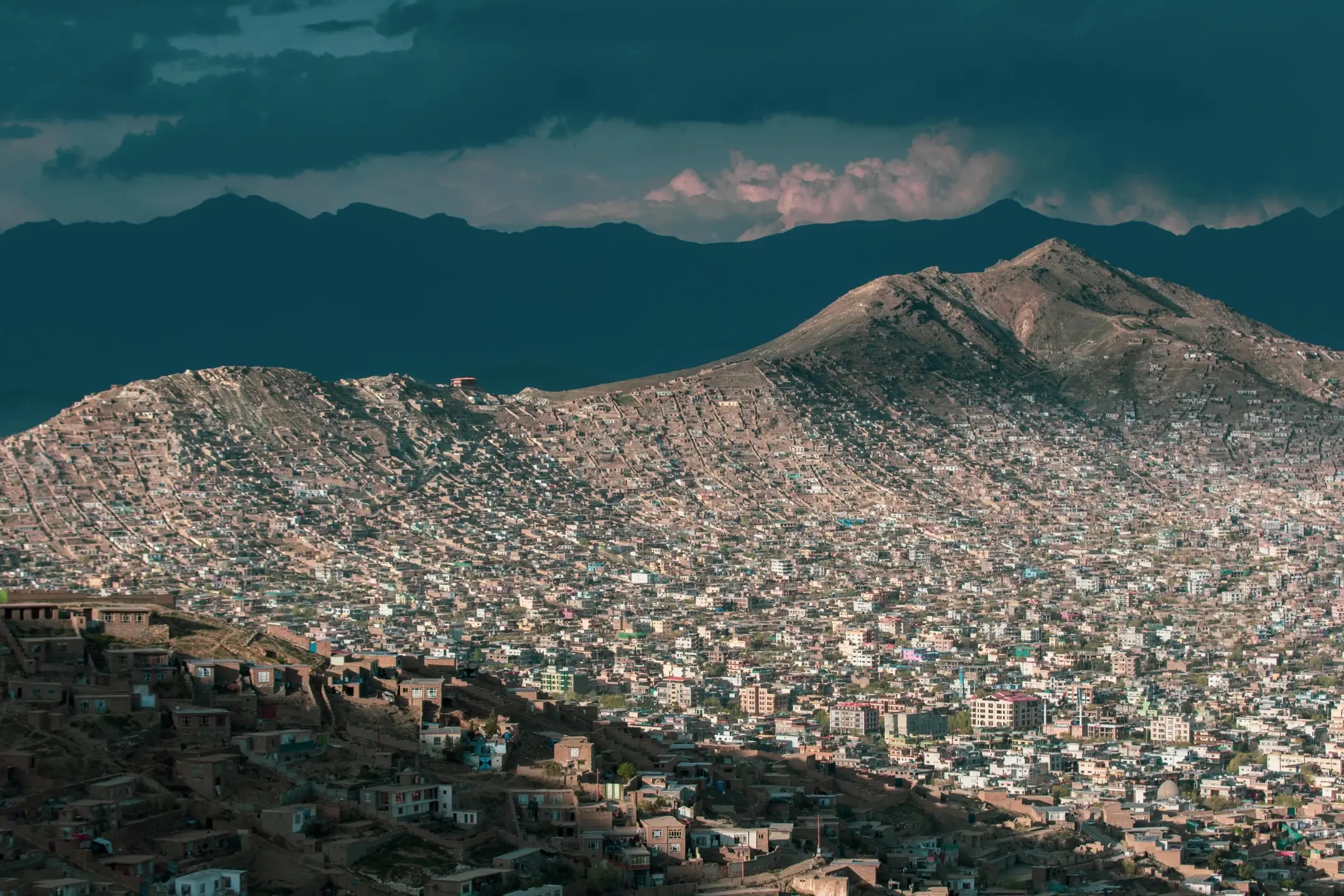
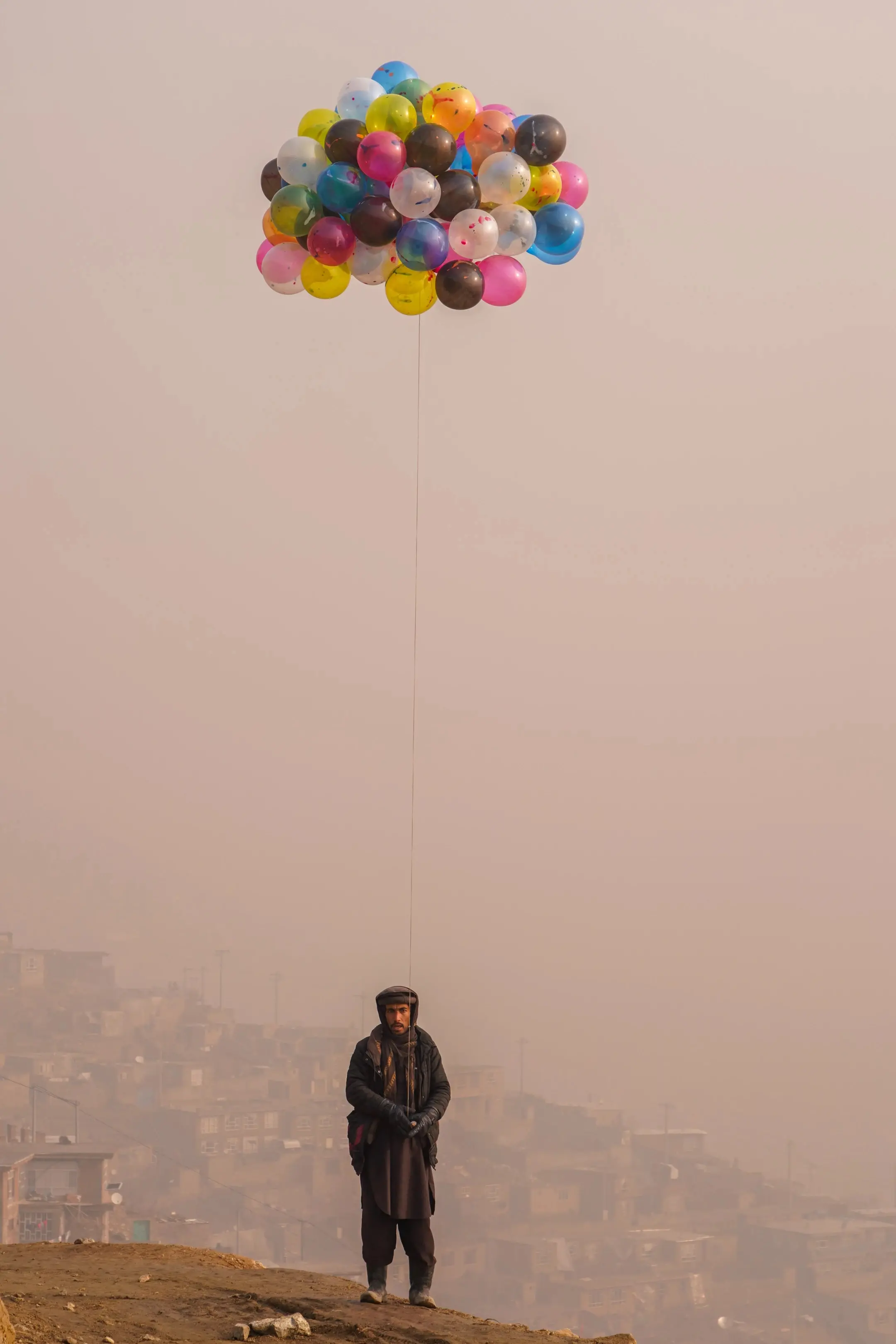
Khan’s passion for photography started in 2014, when he enrolled in a journalism program at a private university in Kabul. He worked as a photographer for television stations and NGOs and rented a gallery space with his brother at the U.S. Embassy in Kabul, where he sold his photos and Afghan handicrafts.
Khan ventured to all corners of Afghanistan to document the people and landscapes of his country. Two years before fleeing, he published about 250 copies of a photo book titled “Hidden Treasure” so he could “show the positive side of Afghanistan, the unseen face of Afghanistan, to the world.”
He was able to bring only one copy on his flight out of Afghanistan.
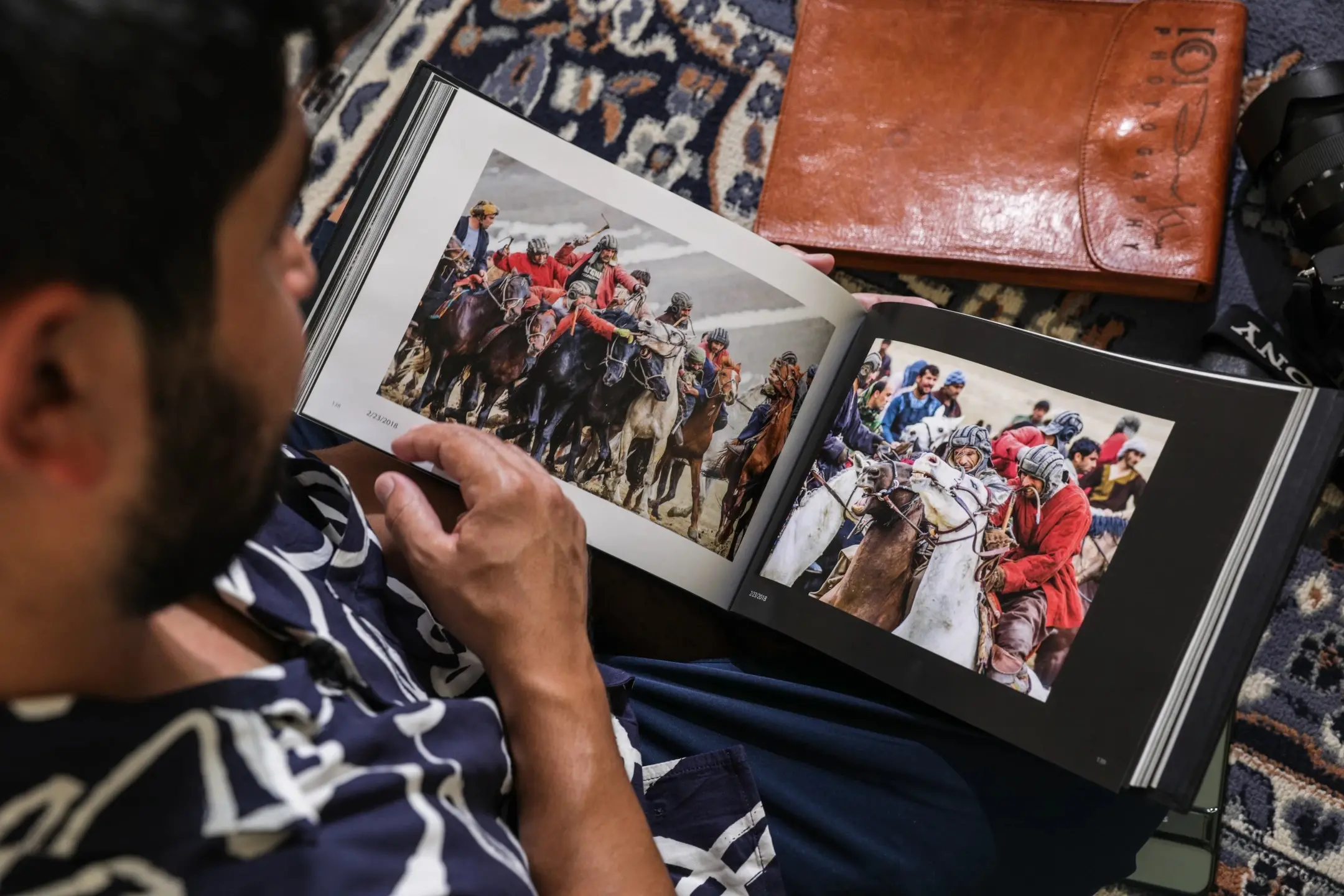
On August 15, as news spread that the Taliban had taken over Kabul, Khan was at his gallery. His wife, Hasiba, called and told him to come home.
“No one could believe that the Taliban would take over Afghanistan again,” he said.
Because of his affiliation with the embassy, Khan knew he couldn’t stay in Afghanistan. The Taliban was already hunting Afghans who had worked with Americans.
His employer at the embassy told him to expect a signal when it was time to be evacuated.
After waiting for nine days and hearing nothing, Khan decided to head to the airport with his wife, son, and brother.
The move paid off. Khan caught a U.S. military relief flight on August 25.
He left behind his father, mother, sister, and brother.
Before evacuating, Khan documented the immediate aftermath of the Taliban takeover, including images of women at a Kabul beauty salon that were defaced. It was the last set of photos he took in Afghanistan.
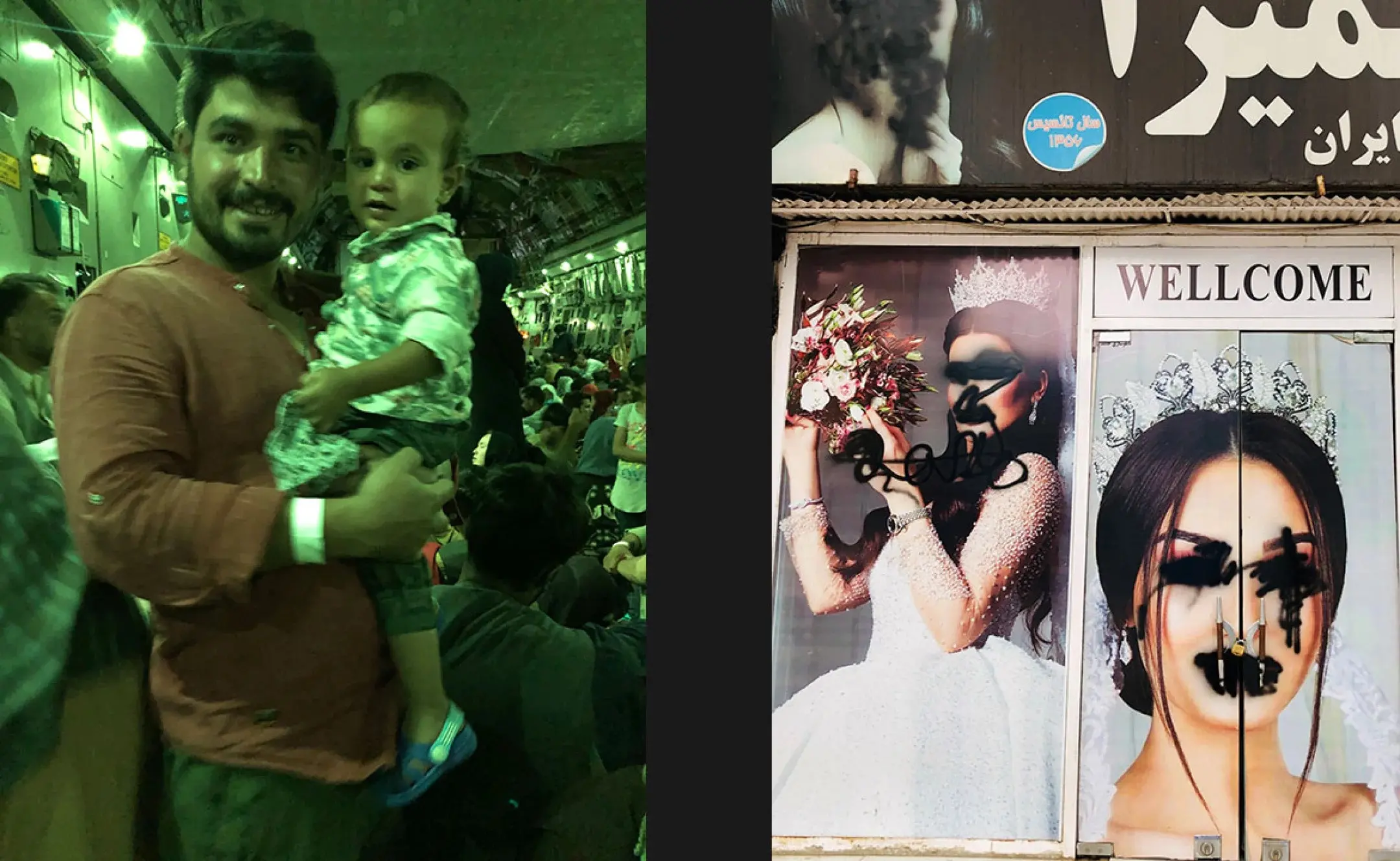
After spending three months at Camp Atterbury in Indiana, which housed thousands of Afghan evacuees, Khan and his family settled in El Cajon.
With the help of Jewish Family Services, a resettlement agency working with Afghan refugees, Khan found a one-bedroom apartment in January that’s close to work, as well as markets selling traditional Afghan food.
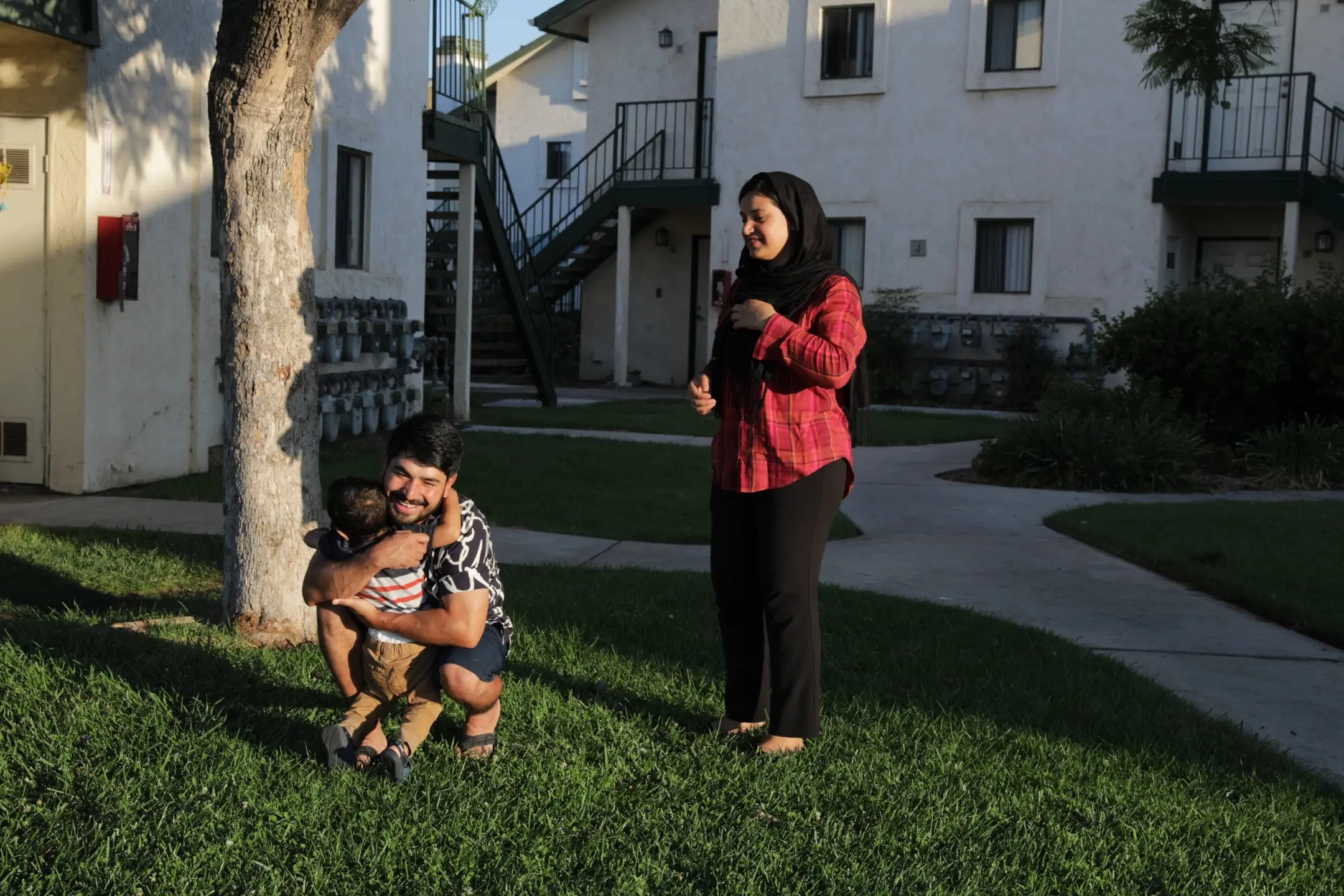
Khan also found work at Subway as a Sandwich Artist, which is how Subway describes its workers who prepare sandwiches. He and his older brother send about $400 every month to his family back home. Under Taliban rule, Afghanistan’s economy has plummeted, and families are struggling to keep afloat.
He hopes to work again as a photographer in San Diego.
“Here life is very different than in Afghanistan,” he said. “But I’m happy now being here. Life is good.”

Khan and his family arrived in the U.S. on humanitarian parole, which allows them to live and work for two years. He and tens of thousands of other Afghan refugees who evacuated do not have a clear path to stay in the country.
The Biden administration has asked Congress to pass the Afghan Adjustment Act, which would streamline the process for visa candidates who worked for the U.S government and allow Afghans to get legal status in the U.S.
Khan is currently seeking asylum so he can stay in the country.
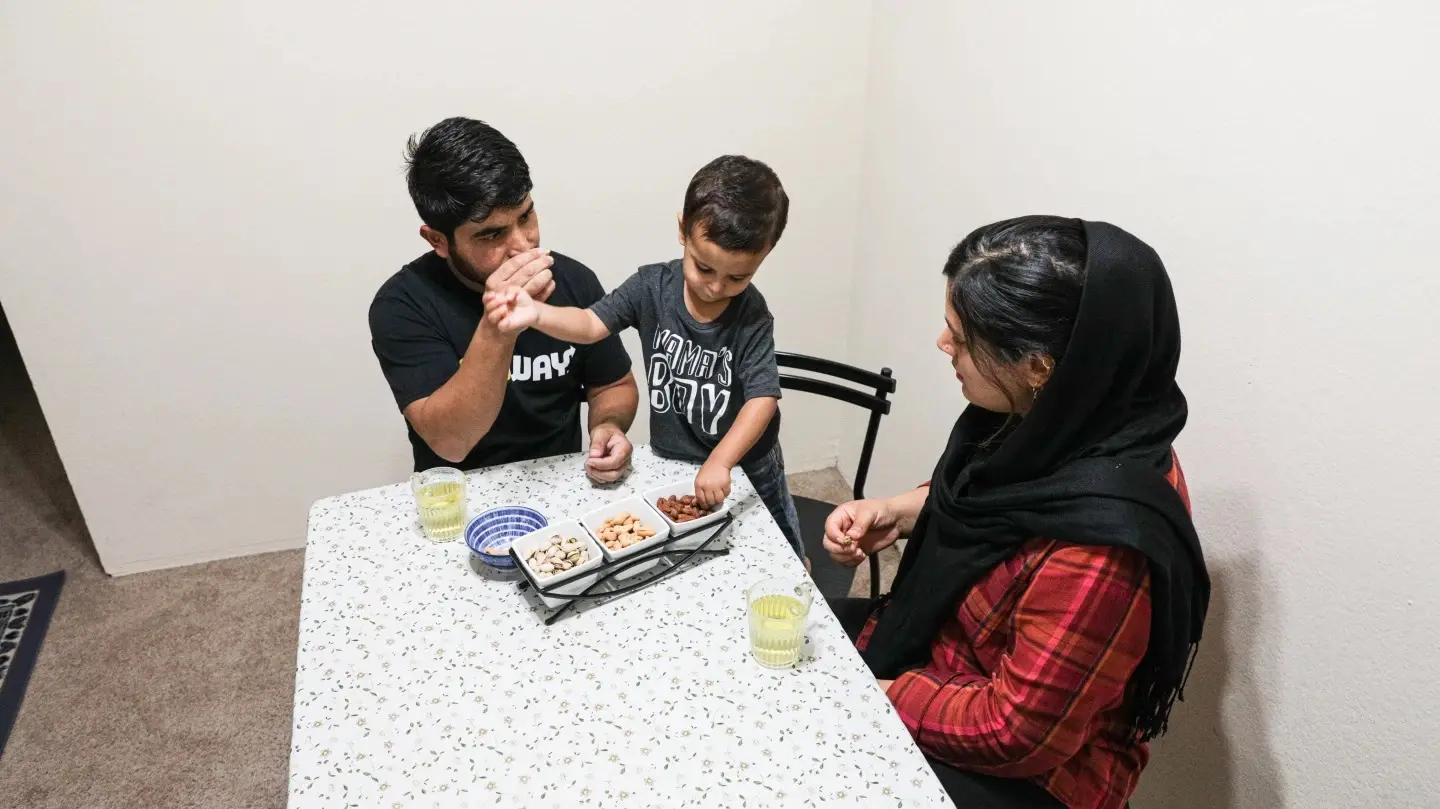
During his free time, Khan goes through the three hard drives that he was able to bring with him from Afghanistan, searching for photos that he didn’t publish yet on his Instagram or Facebook.
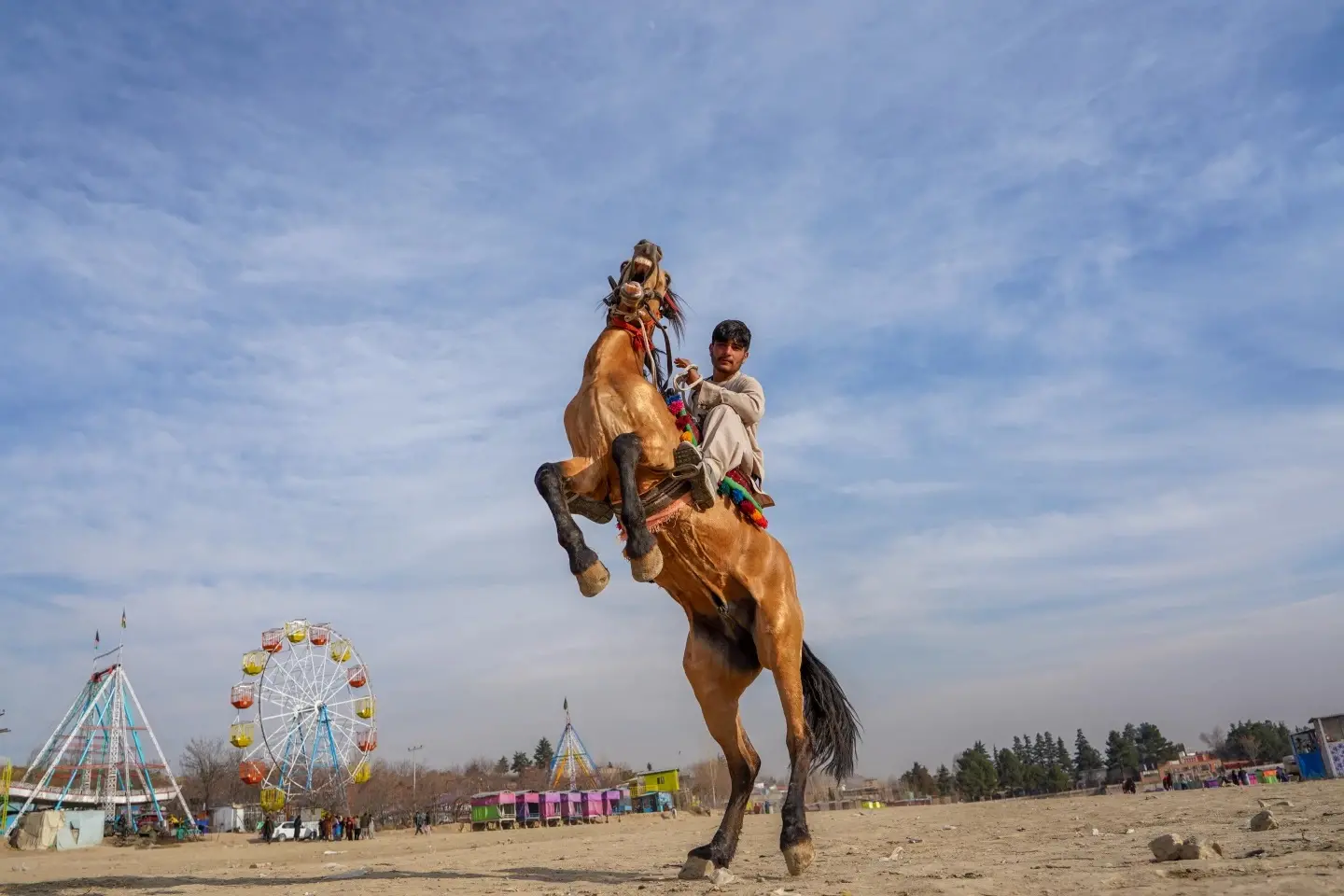
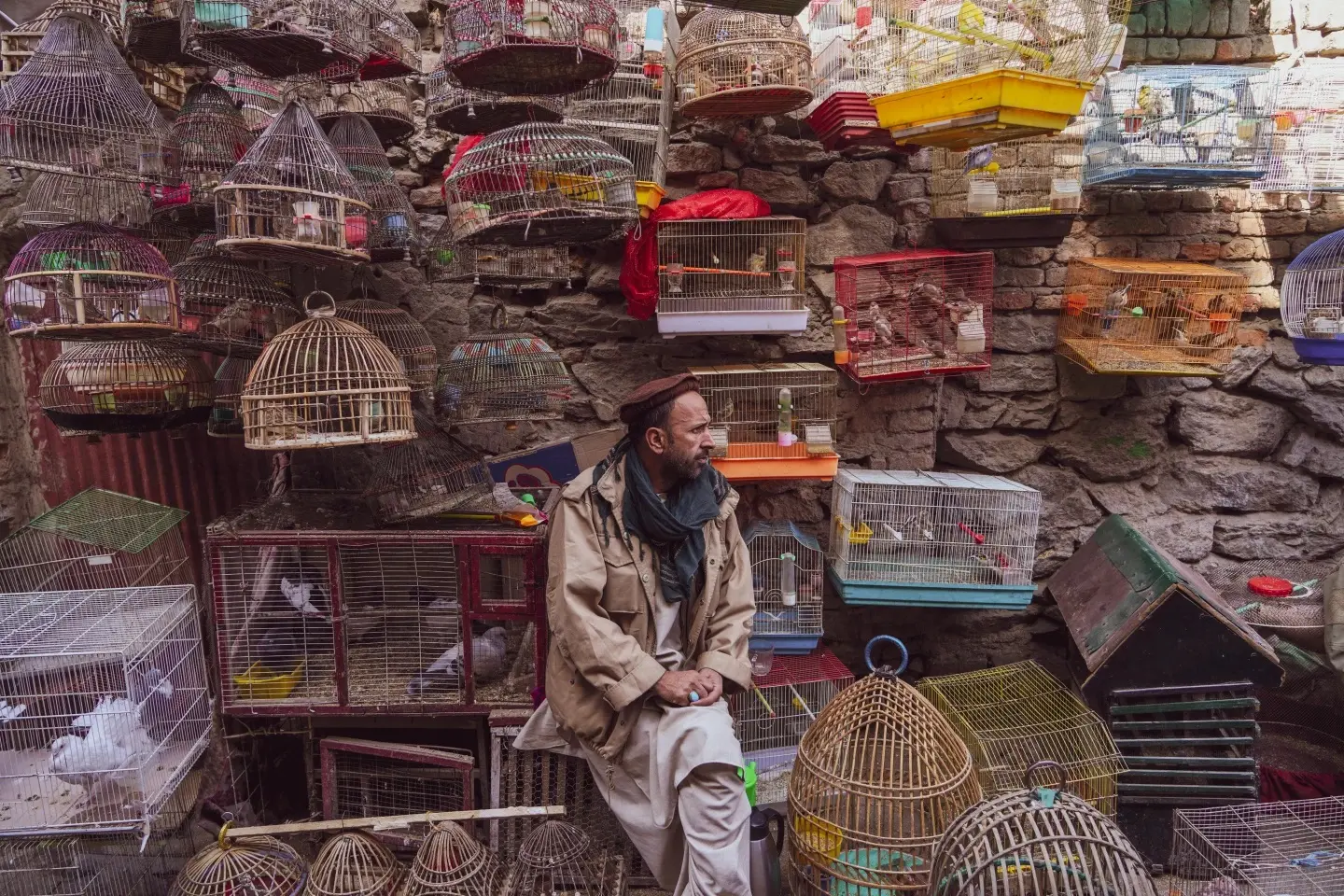
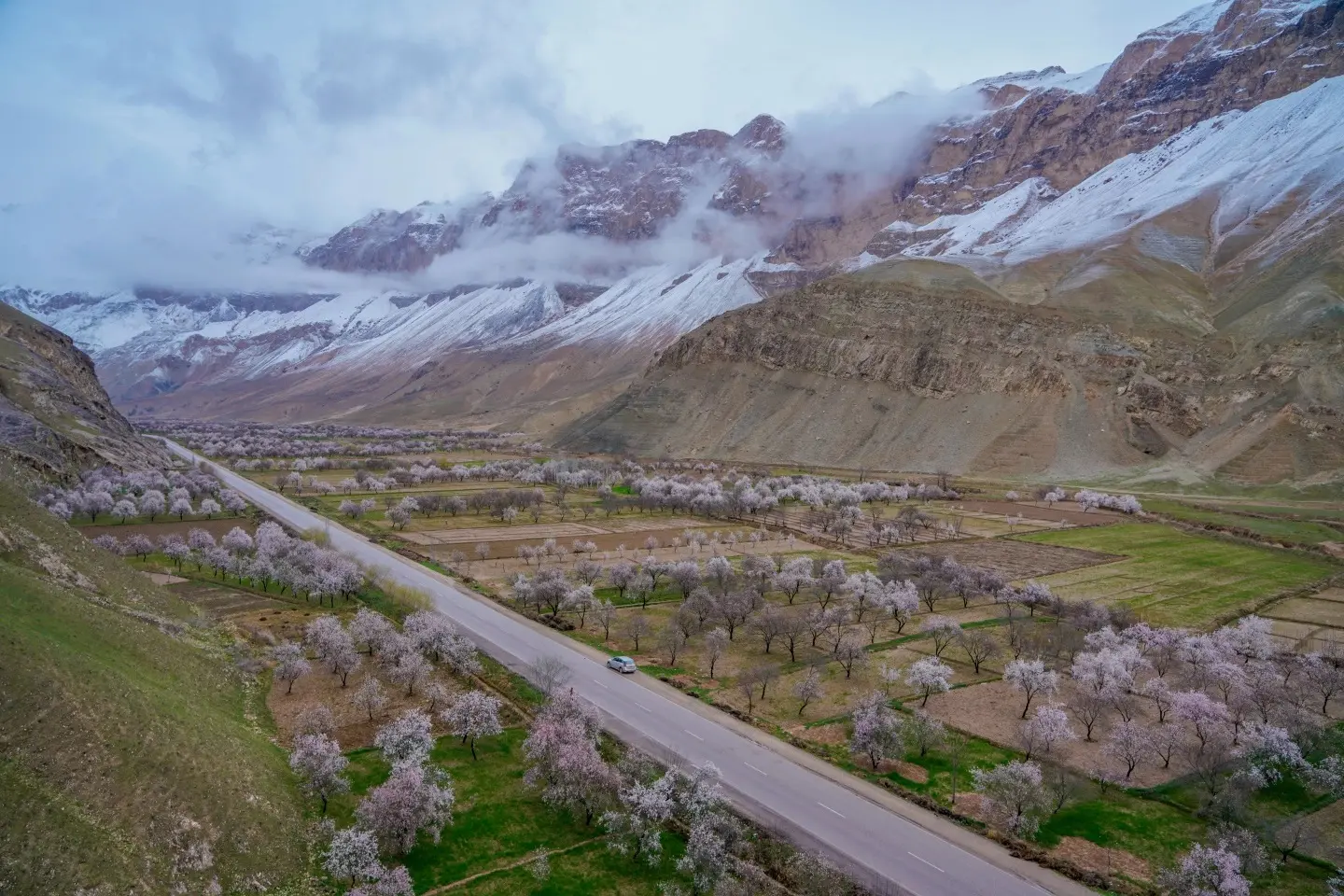
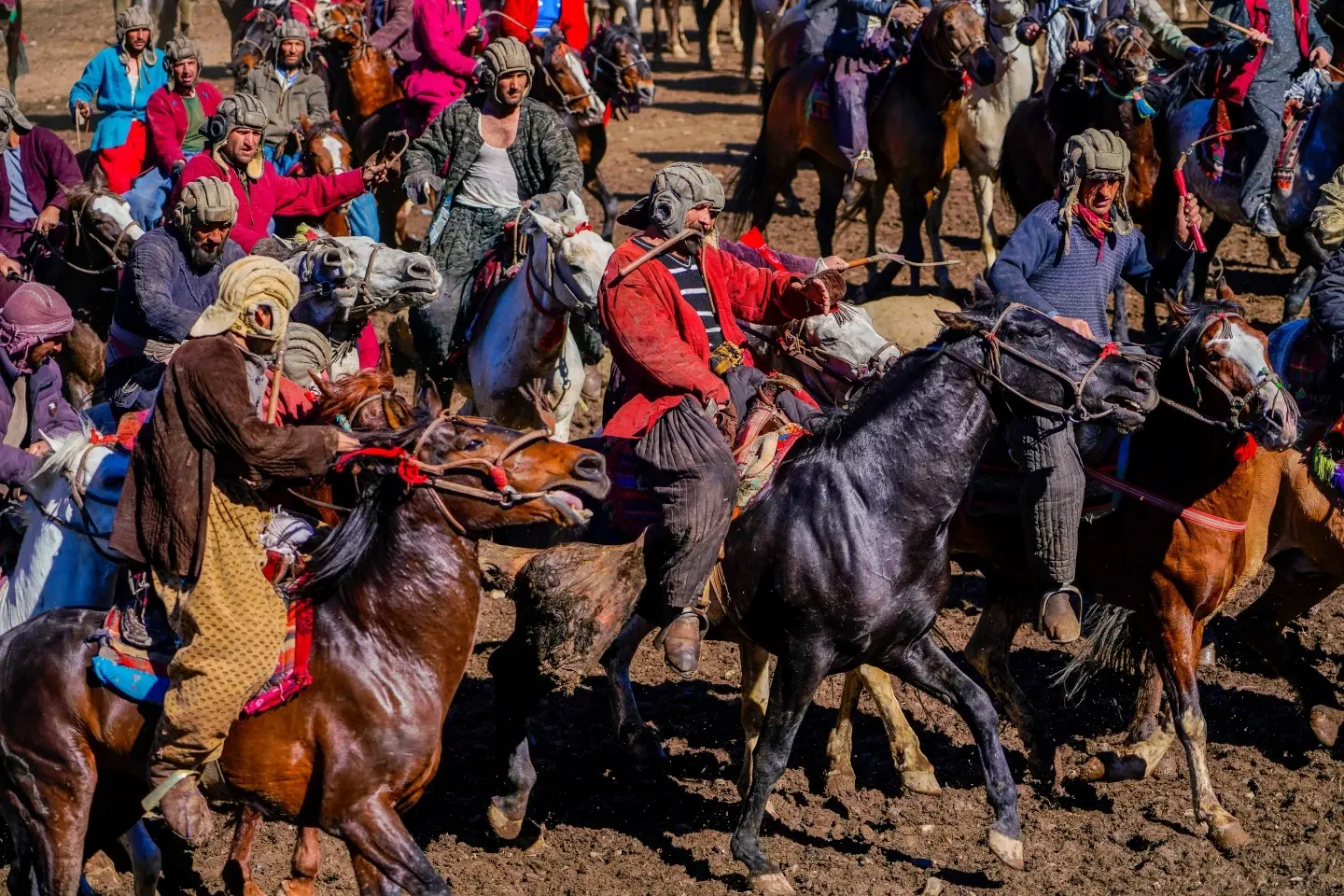
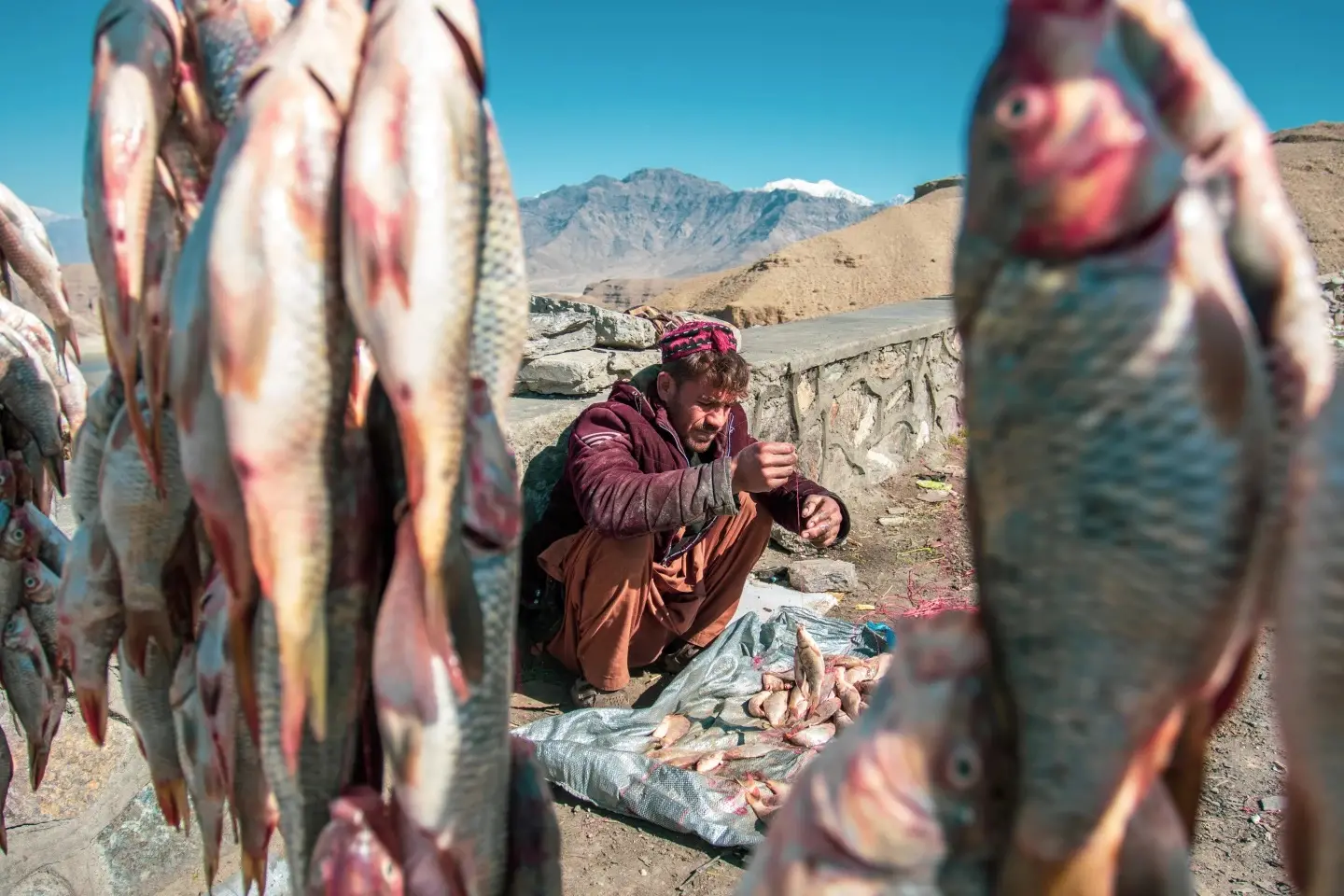
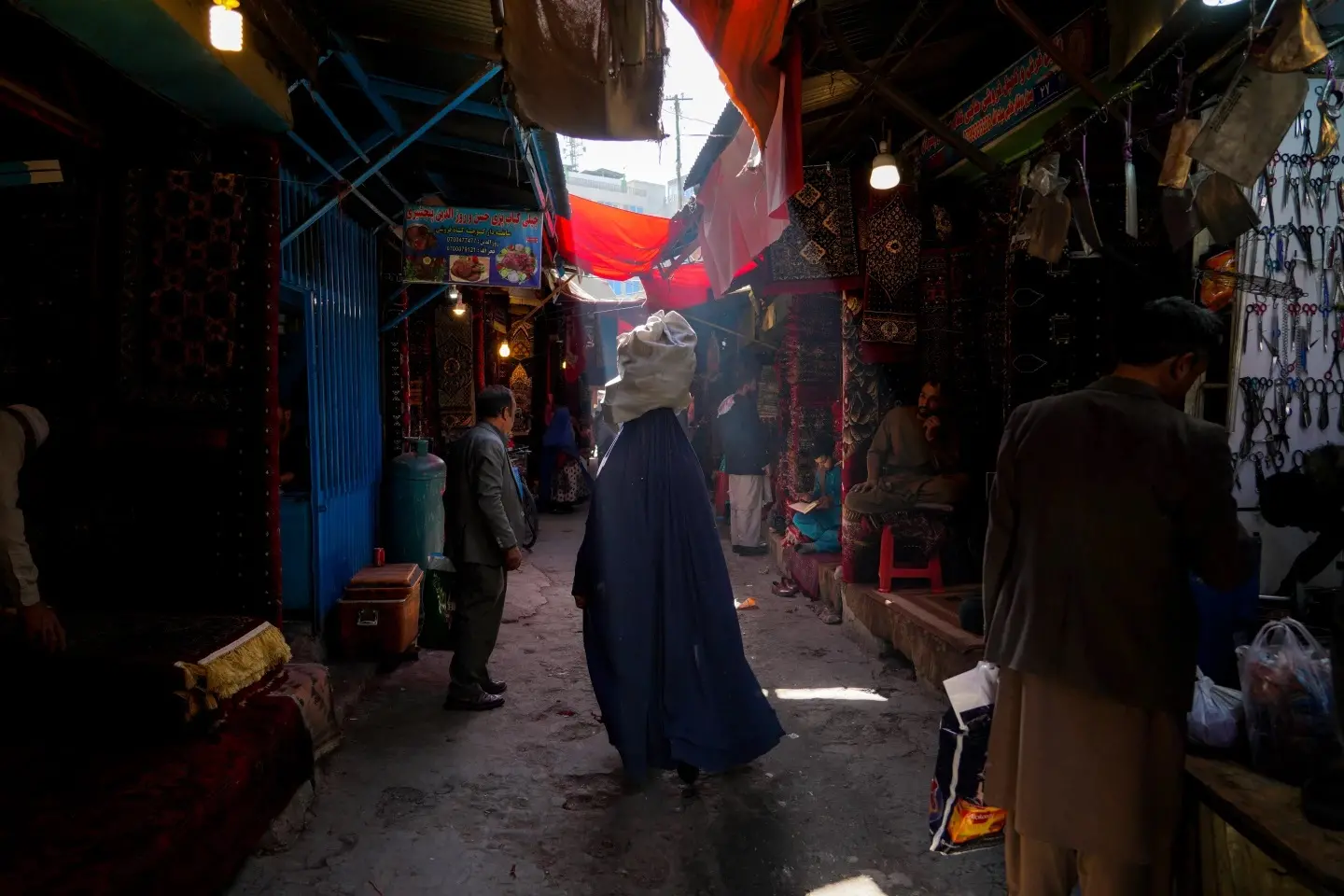
On his Instagram, he continues to post photos of his homeland, along with new photos and videos from San Diego. Khan loves exploring and photographing the region, particularly the architecture of downtown and the beach in La Jolla.

One year after escaping Afghanistan, Khan still has trouble seeing pictures from home.
“It’s like a dream, everything changed in one night,” he said.
Khan remembers thinking about his son’s future as he fled Afghanistan.
“This will be good for him. I spent all of my childhood in war. It is good for him to spend his life and be raised in a good situation and good area.
“San Diego is my home. There is no more life in Afghanistan.”
